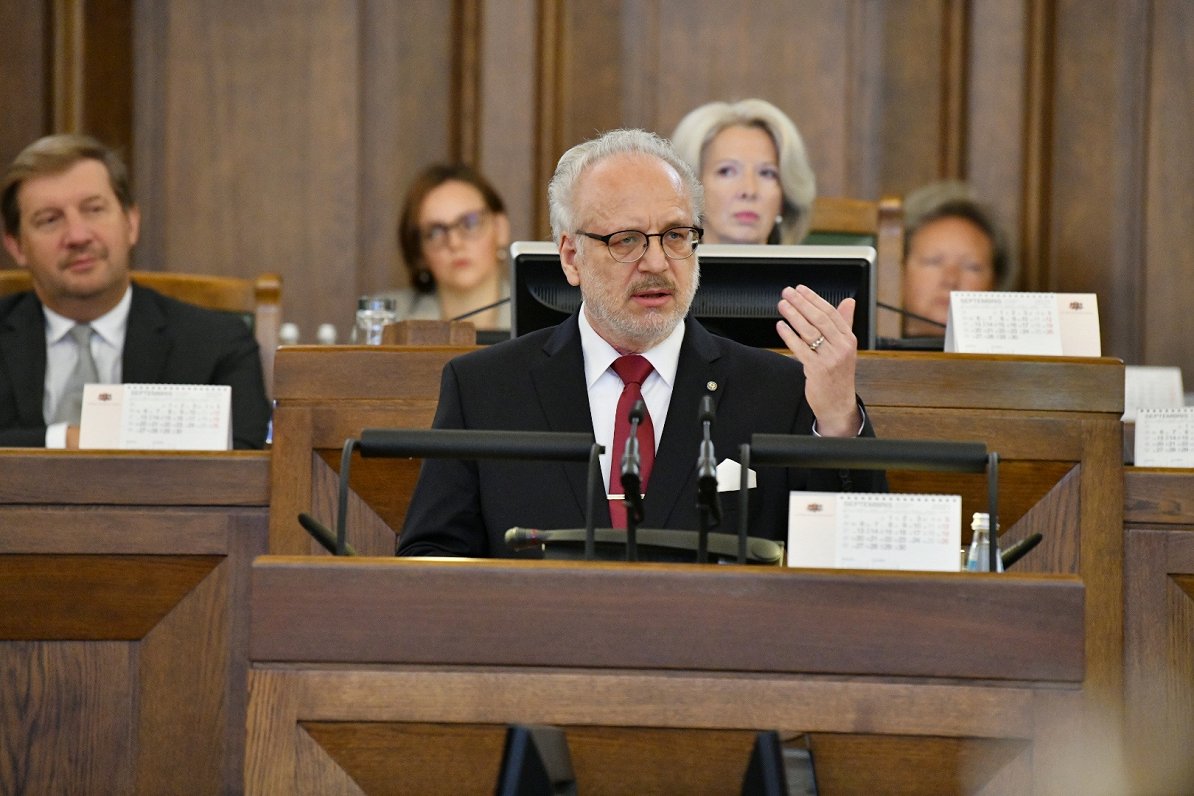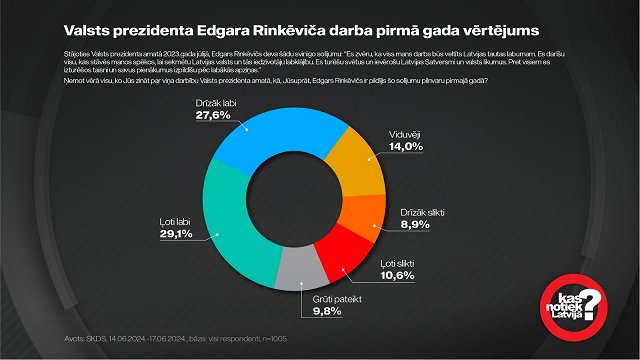This week, the Saeima Legal Affairs Commission supported the nomination of Irēna Kucina, chief adviser to Levits on legal matters, to the position of a judge of the Constitutional Court. Her candidacy had been put forward by the Cabinet of Ministers. However, four deputies did not participate in the vote in the commission, including Inese Voika (Development/For!), who considered that the nomination procedure did not comply with the principles of good governance.
According to LTV, following the vote both Voika and party colleague Vita Tērauda were called by President Levits from his current trip to the United States. Citing several (though unnamed) sources LTV claimed Levits demanded during these conversations that the deputies ensure Development/For! support for Kucina. If they failed to do so, the President could publicly criticize party's ministers and the government, which could even lead to its collapse, according to LTV's description. The two deputies passed on the message to the parliamentary party.
"If you ask me for my personal opinion, I was unpleasantly surprised. It seems to me that this issue is not one that should involve emotional pressure before a decision is made,” said chairman of the Development/For! parliamentary faction Juris Pūce.
The deputies themselves did not want to comment on what Levits had or had not said in front of the camera.
"I told the group his view and what he asked me to do. The group discussed the issue but did not change its mind. There are still concerns about the process by which the Cabinet of Ministers came to its decision," said Tērauda.
Asked whether the president's actions were correct, the deputy said: “I will not comment on the content of the conversation. The president has a strong opinion, and he made it known, yes."
Similarly, Inese Voika declined to go into detail about the transatlantic call from the head of state.
LTV: Did he say he would criticize the government, "For Development / For!" Ministers if "For Development / For!" will not support Mrs Kucina?
Inese Voika: I passed on the President's arguments to the group, as I promised.
But won't you tell us what he said?
That is all I can tell you at the moment.
Has the president done anything wrong?
Inese Voika: I will not comment on this at the moment.
Why?
Voika: I will not comment.
Levits himself denied making any threats and suggested that a misunderstanding had taken place. He told LTV did not put pressure on the politicians during the conversation, but explained that, in his view, Kucina's nomination process was correct and in accordance with the law. A possible misunderstanding had taken place when he attempted to use a particular analogy between theoretical "incorrect" actions of Saeima deputies and presidents.
"Adhering to incorrect and incorrect interpretations would be as foolish as if, for example, the President would unjustifiably criticize the government or an individual minister. This is such a comparison. As I said, that would be wrong and stupid, and so it should not be done. That was the conversation. It may have been misunderstood,” President Levits said.
The law does not involve the President in nominating candidates to the Constitutional Court. However, Levits pointed out that he particularly followed the appointment of his adviser because he is interested in the quality of the composition of the Constitutional Court.
There are seven judges in the Constitutional Court, and in accordance with the Constitutional Court Law, judges are approved by the Saeima. Three judges of the Constitutional Court are approved on the proposal of not less than ten deputies of the Saeima, two - on the proposal of the Cabinet of Ministers and two more - on the proposal of the plenary session of the Supreme Court. The term of office of a judge of the Constitutional Court is ten years. The Saeima has yet to vote on Kucina's candidacy.





























